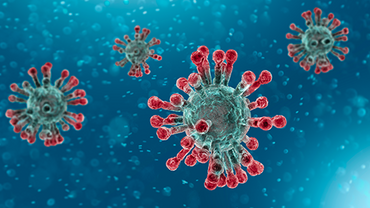ECDC to assess risk associated with spread of SARS-CoV-2 in mink farms
ECDC will assess the human implications of an extensive spread of SARS-CoV-2 in mink farms in Denmark, where by 3 November 197 farms had been affected in the country. Denmark is currently implementing strong control measures, including culling, restrictions of movement of people living in nearby areas and enhanced testing among the general population.
When the virus is introduced into a mink farm, it can spread quickly, leading to many cases among mink. Due to the large number of infections and possibly due to biological differences between mink and humans, the virus can accumulate mutations. Such variants have the possibility to spread back into the human population.
The Danish public health agency, Statens Serum Institut (SSI), has identified seven unique mutations in the spike protein of the SARS-CoV-2 variants in mink. This variant has also been identified in human cases. The possibility of an antigenic mutation in SARS-CoV-2 may have implications for immunity, reinfections and the effectiveness of COVID-19 vaccines, but there is currently a high level of uncertainty over this. Further analyses and scientific studies are needed to better understand the identified mutations and their potential implications.
ECDC is in close contact with Danish public health authorities on the issue and will publish a Rapid Risk Assessment on the situation by 12 November 2020.
For more information, please see the Risk Assessment issued by SSI on 3 November.






